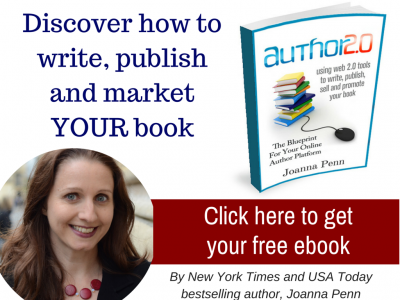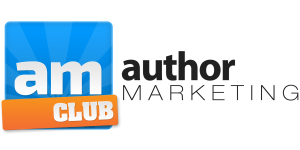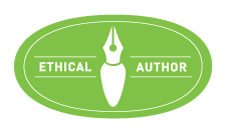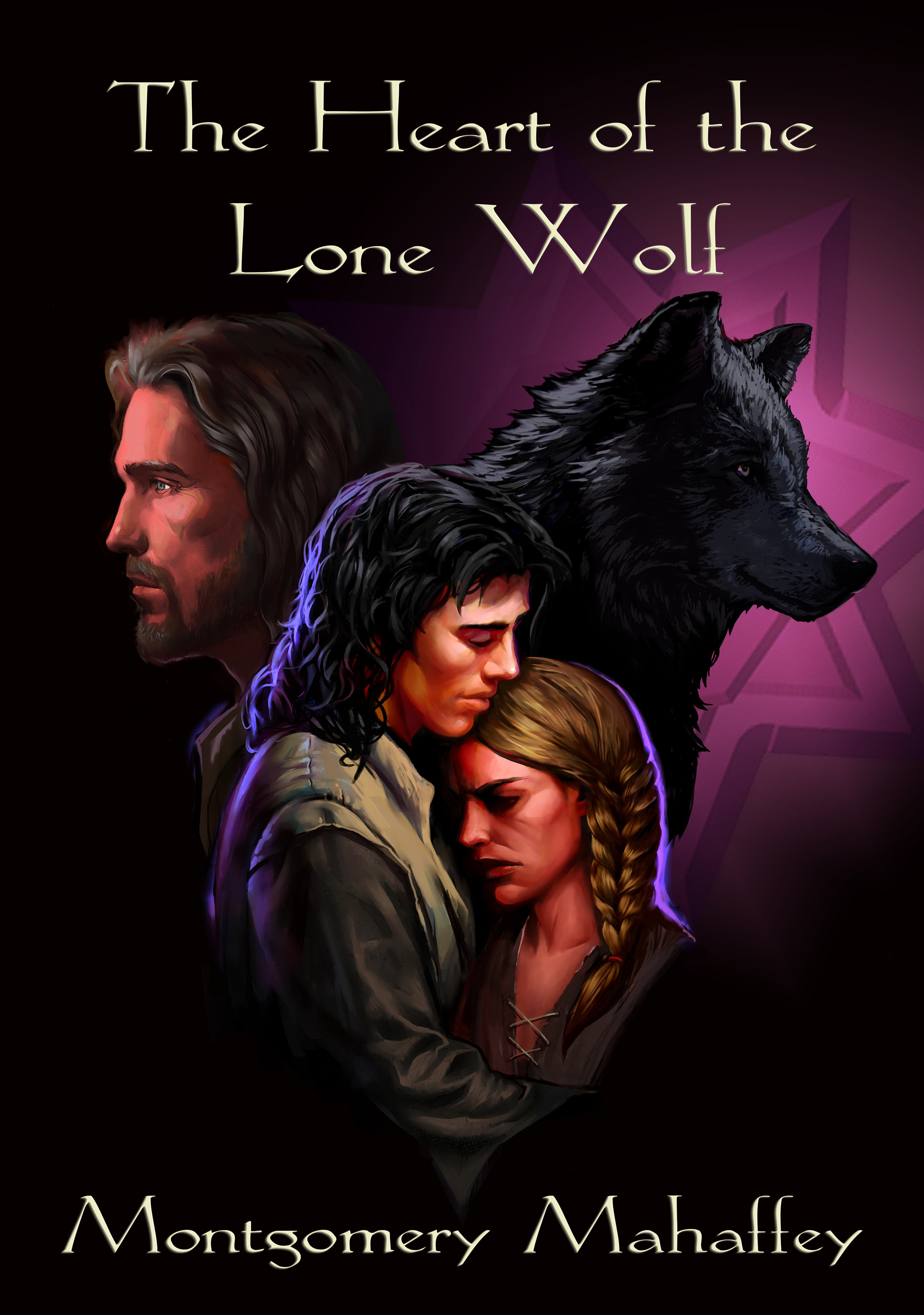Tapestry of Life - On the Road #3
/Hey y’all,
Every time I'm on the road, it never ceases to amaze me how quickly friendships are bonded and easily untied - especially as the need arises. There's something about traveling - being suspended from the day to day life of jobs, rent, bills, social obligations, community service, and established groups - that suspends the usual rules of how people interact with each other. Boundaries are lifted, discretion is almost an insult when making friends and forming temporary community from town to town.
I met Ann at the Amped Cafe in Homer, the day after I arrived in town. She's torn between career and more school, and which way to turn. There was an immediate bond that forged itself when she mentioned living in her truck, with a dog, and a Holly Golightly-style best friend that was halibut fishing with a new fling who "wore his mullet well," and thus, was currently unavailable.
What a coincidence! I'm also living in my truck.
Ann talked me into doing a reading at the open mike that night to get warmed up for the Concert on the Lawn that first weekend. The next morning, she met me at 8:30 to help me set up my booth and was in and out every so often, as the need arose.
Hey, she got into the concert for free. After the weekend, she felt comfortable enough to let me stay in a tent outside the mullet-fisherman's house and I had a place to reorganize my truck and make coffee in the morning.
At the Concert on the Lawn, a volunteer named Lia offered to let me park my truck and sleep in her van with a double bed if I needed a place to stay. She was widowed from the love of her life two years before, and she had done her fair share of adventuring in her youth. She was also letting a young man stay on her property that was on a spiritual path of Buddhism and daily meditation, so it was really no big deal. But she felt the need to assure me that she wasn't coming on to me and that the young man was not her lover.
When Ann moved on to Seward to look into a possible dream job, I gave Lia a call and after it took her a moment to remember me...
"Oh yes, the Scheherazade..." she said. (I totally dug that compliment) before giving me directions to her house.
She got a little reluctant about using her van, but I had a place to park, and a kitchen to make my coffee, and an outhouse to do my business, and my body was scrunched again into my truck's proportions.
She told me her story, and it turns we have much in common.
"We are all interconnected," she said.
If she ever comes to Juneau, of course she'll have a place to stay.
Ann's sweet dog was hit by a car on Saturday night and killed, so she left Seward by the time I got there and the Holly Golightly-style best friend met her in Anchorage. I doubt I'll see her much from here on out, but I have a couple of pieces of mail and her PO box key. I'm sure we'll keep in touch and all, but I suspect that Ann was my Homer friend.
So here I am in Seward to do table to table storytelling at the Resurrect Art Coffee House in Seward. I'm staying at the hostel and it feels like high luxury accommodation to be able to stretch out in sleep and have a place to put food.
This morning I was looking forward to coffee in the communal kitchen and writing in my journal when a born-again Christian wrecked the peace of my morning today when she had to tell me her story of giving her life to the Lord and how happy she was that she didn't have to be good enough to get into heaven, because God sent his Son to die on a cross for her. It's incredible that Christians never stop to think how sadistic and cruel that is...
I felt my energy being sucked dry...dammit, I knew I should have kept my distance.
When I couldn't take anymore of her being saved speeches, I got up and told her abruptly that I had gotten screwed by the same system that had done so much for her, and would she please stop. She said, yes of course and we made banal chit chat and wished each other a good day.
I'm only one thread on the tapestry of life, and these intersections are only a moment and some are a part of beautiful patterns and others...are not.
But then my thread runs on, as does theirs.
As Lia said, we are all connected.
Peace,
Montgomery
PS: This is the 3rd email from my DIY booktour roadtrip that started in the summer of 2005. Ann was the first friend I made on the road, and her sweet dog, Wiley, snuggled against me one night when I was feeling lonely and sad, and maybe a touch of anguish. As amazing an adventure as this was, there were some things that were going on in my personal life that weighed heavy on my heart. I realized Wiley could feel my pain and was trying to comfort me. Later, it hurt so badly to hear that that sweet dog had been killed (frankly, from Ann's carelessness), that I couldn't bring myself to include that moment in this email at the time I wrote it. I regret that. So better late than never that Wiley was remembered as the awesome being that she was. I hope that dog reincarnated to a more responsible owner. Wiley also proved the point of how all of us are interconnected.
PPS: I never saw Ann again, and we didn't keep in touch.
How to Use NaNoWriMo to Write a Novel You Can Actually Publish
/NaNoWriMo was established in 1999 to help writers get the damn words out. One of our biggest hurdles as writers is to simply write. So a bunch of people got together and said, you know what? This November is going to be the month where we get all those words out. One month, 50,000 words.
The thing is, if you participate in NaNoWriMo and you manage to eke out 20-50k words, what then? What do you do in December? January? How do you turn those words into a draft you can actually tolerate to read?
Because when you’re writing for NaNoWriMo, quality doesn’t matter. Just the word count. And on one hand that’s a valuable practice for a writer….I mean, you should be paying attention to quality, but at a certain point it becomes more important to get words out so you can test your ideas, your characters, plot...make sure all of that’s working reasonably well before you start fine-tuning the language.
Plus, NaNoWriMo helps you get in the habit of writing every day. Which is a practice that is essential to being a writer. Writing isn’t something you do when you’re inspired. It’s the job you show up to day after day, getting your work done.
So that’s the great part about NaNoWriMo. But here’s the clincher. A lot of writers find that once they’ve finished their 50k words, they have a novel. Without revising. Without letting those words sit in a cold dark drawer for months and months collecting dust, to be brushed off at some future date when your brain is clear from the wash of excitement and sweat and can actually be a little more objective when going through for an edit.
NaNoWriMo is valuable for helping you to develop your work ethic. NaNoWriMo is helpful for testing out your ideas and pushing through the hard moments of plot failure, character tweaks, and communication issues. It’s a caffeine fueled binge for your craft.
But you need to remember that you’re practicing a craft. A cabinet maker doesn’t just slap some wood together in the shape of a cabinet and call it good. There are all of the other elements involved: the glue and clamps and perfectly fitted joints, hours of sanding and finishing and sanding and finishing again. There are the finishing touches, the carefully picked out brackets and handles. No aspect of the work gets ignored.
Which means that NaNoWriMo is your time to get the words out, and the following months are used to hone the other parts of the craft: learning how to let it sit, revision, accepting critique, and editing.
These other aspects are instrumental in growing your abilities as a writer, and if you’re planning on shipping your manuscript off to an agent once you’re done, you’d better be sure you’ve followed through on these other steps.
NaNoWriMo Calendar to Get You a Bonafide Novel by June
December: READ other books
Reading is paramount for your success as a writer. It’s Stephen King, one of the highest grossing authors and a man who produces an insane amount of national best-selling books, who famously said, “If you want to be a writer you must do two things above all else. Write a lot and read a lot.”
If you’ve been grinding down to write your entire novel in the month of November, take December to catch up on your reading. Go as crazy as you did for NaNoWriMo. Set a goal, say, 10 books, and tear through them this month.
Reading other books will help inform your own writing. You’ll get ideas for how to revise your own novel. When you’re reading a well-regarded novel, you’re actually learning about writing from a master. So use this as a means to make your own writing better.
This month is also a time to let your manuscript sit in a dark drawer, away from prying eyes. You don’t get to read it. You don’t get to show it to other people...not yet. Distance yourself from your work (and from the rigor of the work) and let it simmer until you come back to it next month, in January, when you can read it over with perspective and a fresh set of eyes.
January: Revision
Your first phase of revision is your own. You still haven’t introduced your manuscript to other readers. Keep this round for yourself. Your head should be full of other people’s novels, so when you turn to your own you may better be able to hear rough patches or finicky plot twists.
February: Readers
NOW you get to show your work to some people whose opinion you respect. Ask them to read your novel and give you notes -- not edits; you’re not into the nitty gritty fine-tuning yet; you don’t care if you’ve misplaced a comma or if you have a tense out of place here or there. Just get broad notes on characterization, plot, language, dialogue, scenes, sense, etc.
Collect all your feedback and consider it. Many writers I’ve come across have a hard time taking in their reader’s feedback, feeling like their work is too precious, or the reader just doesn’t “get” the work, or any number of reasons.
But the truth is, as a writer, you’re not writing for yourself, you’re writing for them, for your readers. So if your readers are struggling with something, take a step back and pull your ego out of it and change the damn thing.
You’re supposed to pick writers whose opinions you trust, so there’s no reason why you should back out of that trust once you get their feedback.
March: Revision
Round 2 of revisions! Now that you have reader feedback it’s time to make those changes. Run through and fix what your readers have asked of you (as long as you agree, and you’ve taken your ego out of it!) and then run through it one more time reading your entire manuscript out loud.
Reading aloud lets you actually hear how things are sounding outside of your head, instead of locking you inside your own brain where things generally sound better and make more sense.
April: READ!
You’re almost done! So put your manuscript down and let it sit again in that dark drawer that’s becoming more comfortable and friendly by now. Read more books and learn more so that when the time next month for critique and final edits, you have more knowledge and more writers in your head to help you error correct.
May: Edits and Critique
This is your final round of edits, so instead of finding readers among your friend group, send this round off to people who are actual writers or editors. If you don’t know someone who is a professional writer or editor, hire somebody. You’ve just spent MONTHS working on a novel that you want to actually be able to publish? Spend some cash to get it professionally edited! If you believe in your work you’re making a worthy investment. If you don’t believe in your work, that dark drawer will be happy to hold onto your manuscript until you’re ready to grow a pair and make it good.
Make your final edits per your editor’s notes, give it a final read through, and accept that it’s not going to be or do everything you wanted. I remember Zadie Smith saying something like, “the best time to revise a novel is several months after it’s published.” You’re never going to catch everything; you’re not going to be 100% satisfied.
And hey, you’re still probably not done. Next month you’re going to send it off to agents and publishing houses and you’re going to get rejection letter after rejection letter. It’s likely going to take several months for an agent to want to pick up your work. Stick to it; learn from rejection. If you’re lucky enough to get feedback, incorporate that into your revisions and keep on sending.
If you're going the route of independent publishing, you can be sure that your work is ready for the public at this stage.
Following these steps may not seem as romantic as churning out 50k words for NaNoWriMo but they’re going to give you a manuscript you can be proud of, knowing you actually put in the work.
From 2005 - On the Book Tour in Alaska: Suckers for Cutsie Poo and Unexpected Good Dates
/Before I get too carried away, let me just say one thing...next time in Anchorage, check out El Tango on Tudor behind the Holiday gas station. If you've gone to Hooters you have definitely gone too far! El Tango has a fantastic menu of latin cuisine - Columbia, Argentina, and Puerto Rico - a very friendly staff and a small dance floor. It's only been there for a year, the location sucks, but if you like your ambience refreshing, then this is the place for you.
Last night at Cook Inlet, I was one of a cluster fuck of writers. Needless to say, we were overcrowded at one small table, so we got another one and two of us sat there. I figured stake out the front door and get more attention, but everybody still herded around the schoolteacher at the other table, with a mountain of her "Recess at 20 Below," full of pictures of her students having FUN in her class and adorable narrative about school life in Delta Junction. It was very cutsie poo.
Meanwhile, I misread a possible fan, Sheila, and told her the first chapter of Ella Bandita, complete with the dirty old sorcerer, the cold-blooded daddy, and the eaten heart. Sheila then let me know that she was a fan of Walt Disney version of fairy tales and that she used to have a friend who would have been into my writing because she wrote a lot like me.
"But she's dead now," Sheila said.
So nice of her to tell me that.
Do I sound bitter? Really, I'm not.
At this point in my road trip, I have had enough successes to not sweat the flops. Besides, last night was a quality, if not a quantity, experience. I ended up with a date. A good one, too. With the nice guy.
Go figure, that never happens to me. I usually gravitate to the those-I-cannot-or-should-not-
That's how I ended up at El Tango. Besides the food and the Argentinian staff, they had a keyboard player whose keyboard created a symphony with every note, and the staff would get up there and sing. Since they didn't have the tv screen enabling bad singers to massacre mediocre lyrics, it wasn't really karaoke, but it kind of felt that way. Since the staff were the main singers, most of the songs were in spanish, so it was very cool. It also helped that they could...oh, sing. Hugo, the owner who was from Argentina,
I love latin folk, they really have the happy to live mentality down pat. Hugo gave us free drinks, calling us amigos and that we are family.
"When you are in Anchorage, this is your home." Hugo said.
Nothing is perfect, however...
Hugo is a sucker for Celine Dion, because his daughter, Lilly, belted out "I Will Always Love You," and he sat there looking emotional.
But other than that, it was awesome.
I was coming back on Tuesday, but my good date asked me out again, so...
I'm coming back to Juneau roughly sometime around before I head down to the lower forty eight by November 1st. Does anybody have a housesitting gig or an extra room? I rented my place out and I don't know about crashing on my own couch for almost two weeks. It'll be good to see the Vagabond - my cat, that is. And of course, all of you.
Top 5 Websites for Author Marketing Resources
/Over the first year of developing a press and author identity online, Free Flying Press has a few gems to offer other writers starting their journey to independent authorship. A few things are absolutely essential for the aspiring indie author: community (made up of readers and authors alike), social media (get out there and engage!), and a marketing platform. Of these, the latter always proves the most difficult. Here's a round up of the top 5 most useful advice and author marketing platforms that we've found:
- The Creative Penn
Joanna Penn is a New York Times and USA Today bestselling thriller author. She shares her knowledge about self-publishing and marketing with monthly emails and great content on her website. If you want to know about how to start your marketing platform, build a social media strategy, and sell your first book, check her out!
2. Author Marketing Club
AMC has it all. Tutorials for beginning authors, marketing strategies, tons of great freebies, all in a centralized, easily navigable place. Great for each novel you put out. Our favorite feature is the 'review grabber' which lets you search a genre or title in amazon, and pulls all of the reviewers email's or websites from the reviews. Then you can set up your plan to email them for reviews of your own book! For every 20 reviewers I mail out to, I get about 5 responses, and of that about 2 reviews. Not bad! It's about $25/mo to join, or $129 for the year. Totally worth it.
Here's a rundown of their services:
- Book Widget Creation Tool
- AMC Buzz Team
- Amazon Enhanced Description Maker
- New Member Book Feature
- FREE Pre-made Book Cover
- Masterclasses
- Free 99c Book Promotions
- Author Marketing Academy (videos/webcasts)
- Author Success Interviews
- Author Marketing Checklist (they give this away for free)
- Book Discovery Sundays
- Author Secrets Mastermind (marketing and promotion strategies)
- Author Tales (you can upload text or video)
- AMC Bookalyzer
- Brag Board
- Help Me Choose a Cover
3. Goodreads
This is the best place for community. Goodreads offers groups, which let you build community and find like-minded readers. There are also groups for readers/reviewers, where you can get a fair number of reviews for your book. You may have to work a little to get them, but that's what this is all about--work and results! Plus, host a giveaway on goodreads and reach thousands of potential readers who will save your book in their 'to-read' file and boost your rankings.
4. Inkitt
Inkitt is a goldmine. Here you can post your own stories and get feedback from writerly readers. You can also find great stories to read and authors to connect to. They have near-constant competitions running so you can get your work noticed. It's rather new, so you have a smaller, targeted audience, and a lot of passionate writers to connect with.
5. Standout Books
With tons of cute infographics to go along with solid writing and marketing advice, Standoutbooks is a fun mailing list to sign up with. They offer a few promotional/marketing/editing services, but I go there mostly to peruse the advice blog.
Bonus: Your Guide to Social Media
If you're like me and you loathe social media, my guide for authors who hate social media will help make this necessary evil a lot less daunting and horrible.
Get your guide now !
[maxbutton id="13"]
The Ethical Author
/"The Ethical Author" has not been a phrase or quandary I've come across during times of big publishing houses ruling the readersphere. But it comes into play more when independent authors are seeking ways to gain exposure.
Can you buy reviews?
Can you scour your friends and family for possible boosts in the amazon charts? How much do you charge for your book without the same overhead as a big box publisher?
There develops a bit of a question about the Ethical Author. A google search of this phrase will yield over 81,000 results. I found the discussion time and time again on blogs, in goodreads groups, and on amazon threads.
Most recently, digging through twitter feeds for something worthwhile, I stumbled upon a question: Are you an ethical author?
Immediately I said to myself, yes! I am fundamentally committed to keeping labor as local as possible, even if that means more expense for my product design, and I don't reflect that cost in the price of my book. I write the stories in my heart for the reader and no one else, and I've chosen the indie pub route because that allows me to be choosy, to craft my own ideal publishing house.
Want to know if you're an ethical author? Download the checklist and find out!
[maxbutton id="12"]
The Alliance of Independent Authors offers a badge for the Ethical Author. They give you a list of responsibilities. Reading though this I felt a tug toward the importance of acknowledging the question.
Check it out:
Ethical Author Code
Guiding principle: Putting the reader first
When I market my books, I put my readers first. This means that I don’t engage in any practices that have the effect of misleading the readers/buyers of my books. I behave professionally online and offline when it comes to the following practices in my writing life:
Courtesy
I behave with courtesy and respect toward readers, other authors, reviewers and industry professionals such as agents and publishers. If I find myself in disagreement, I focus on issues rather than airing grievances or complaints in the press or online, or engaging in personal attacks of any kind.
Aliases
I do not hide behind an alias to boost my own sales or damage the sales or reputation of another person. If I adopt a pen name for legitimate reasons, I use it consistently and carefully.
Reviewing and Rating books
I do not review or rate my own or another author’s books in any way that misleads or deceives the reader. I am transparent about my relationships with other authors when reviewing their books.
I am transparent about any reciprocal reviewing arrangements, and avoid any practices that result in the reader being deceived.
Reacting to reviews
I do not react to any book review by harassing the reviewer, getting a third party to harass the reviewer, or making any form of intrusive contact with the reviewer. If I’ve been the subject of a personal attack in a review, I respond in a way that is consistent with professional behaviour.
Book Promotions
I do not promote my books by making false statements about, for example, their position on bestseller lists, or consent to anyone else promoting them for me in a misleading manner.
Plagiarism
I know that plagiarism is a serious matter, and I don’t intentionally try to pass off another writer’s words as my own.
Financial ethics
In my business dealings as an author, I make every effort to be accurate and prompt with payments and financial calculations. If I make a financial error, I remedy it as soon as it’s brought to my notice.
Responsibility
I take responsibility for how my books are sold and marketed. If I realise anyone is acting against the spirit or letter of this Code on my behalf, I will refer them to this Code and ask them to modify their behaviour.
Especially at a time when finding reviews is difficult. When your book feels like one-in-a-million-in-a-mire, do you stick to your feelings about quality, readership, and responsibility? I'd love to hear your thoughts about this.
Are you an ethical author?
Download your very own ethical author checklist and find out!
[maxbutton id="12"]
Twitter Campaign for Independent Authors
/Hello all! I've got some exciting news. I've just launched a twitter campaign to help promote self published authors. I'm so glad to give to the indie community and offer a little bit of exposure to my fellow writers who are working to promote their own work (and find time to write the next novel!) Twitter has been a tough social media format for me. It's so loaded with garbage it's hard to sift through to find the gems. Instead of scrolling feeds, I decided to find a way to check out new authors as well as use twitter to promote them. With an open-invitation system (just email info@freeflyingpress) and author-designed tweets (send me 140 characters and an image of your book) I can quickly schedule in 4 tweets to help spread the word about new books.
I hope this model will connect me with other authors & help strengthen the indie community while sharing news about hot new titles. I'd love to hear your comments and thoughts about how to use twitter to build community and help each other grow our author online presences!
& in the meantime, check out a preview my latest ebook release The Heart of the Lone Wolf coming in September. For only .99 you can get your preorder copy today!














